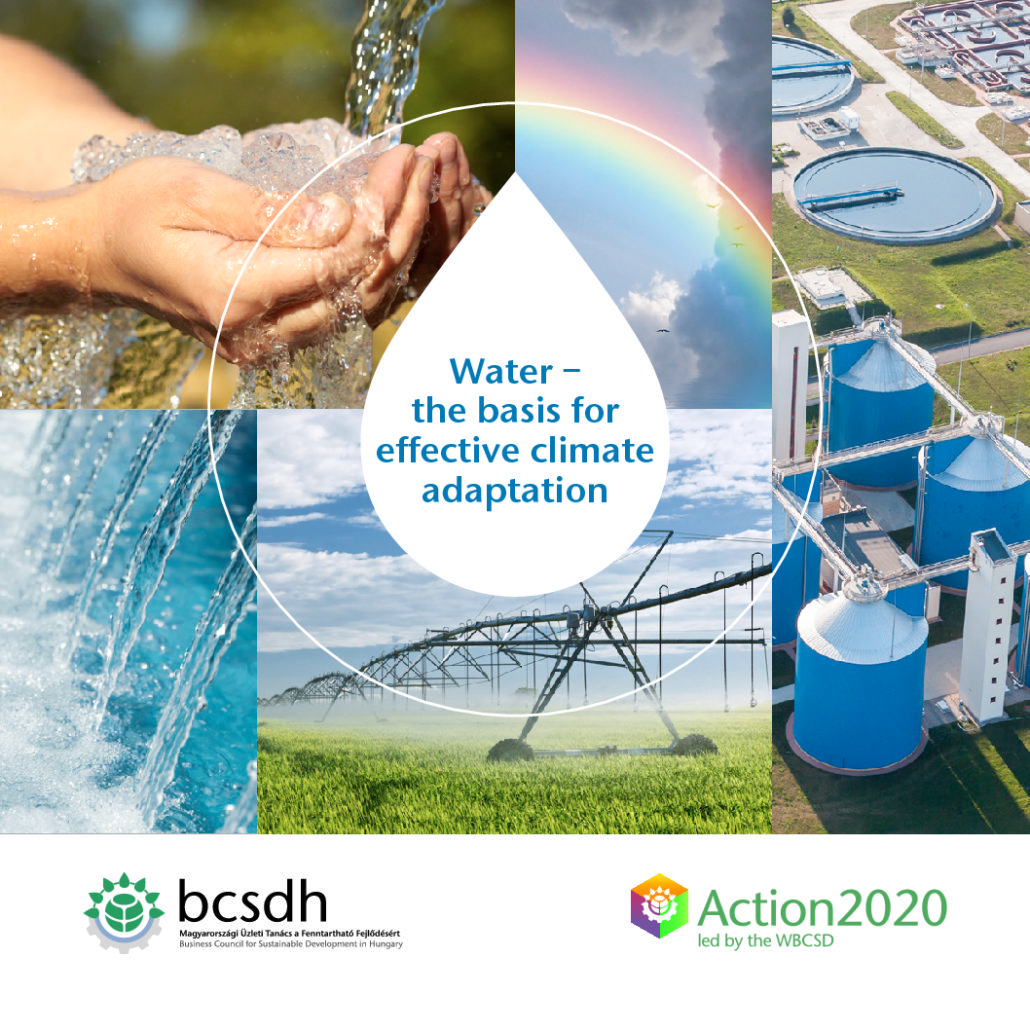Action 2020 Hungary – Water – the basis for effective climate adaptation
Water is an indispensable component of our lives: humans can only live in its absence for a few days. It also plays an important role in countless processes: food production, heating, cooling, cleaning, and as the main ingredient in many products.
Water resources, hit by the global demographic explosion and related, dramatically increasing consumption and pollution, are also closely linked to climate change, one of the biggest global challenges of our time. Eighty percent of the effects of climate changes occur through water. There is no company that does not depend on this natural resource. Industry, agriculture, and the service sector need an adequate quantity and quality of water, as well as security of access and supply.
Although Hungary is currently in a favourable position with regard to water resources, it is important that we maintain this positive status, the accessibility and the security of supply, including supply infrastructure, over the long term.
We must also consider the facts that…
• Hungary will be hit harder than the European average by the adverse effects of climate change.
• A significant increase in the appreciation of water resources, partly affected by a deterioration in water quality, may be expected.
• The cost of replacing largely obsolete infrastructure is putting significant upward pressure on service charges.
The business sector also needs to be prepared for these changes. Companies need to be the first to identify where changing supply and access conditions pose a risk, and to adapt to changing circumstances, thereby helping reduce the former. Water efficiency is a competitiveness issue that cannot be separated from security of supply. In addition, securing the availability of good quality water will be a growing challenge for companies.
BCSDH, along with the heads of its member companies, has made three recommendations that may help the business sector take the steps needed to achieve their water goals:
1. Elaborate climate adaptation strategies, in which water is considered a valuable resource and a risk factor of significant relevance.
2. Implement circular water management practices to reduce the water footprint.
3. Create partnerships in the value chain and operational environment to increase water efficiency and water renewal.
By taking the steps above, the business sector can make a significant contribution to building a sustainable future. To do this, BCSDH would like to provide its member companies with all the necessary professional support so that they can not only follow but actively shape future changes and global trends.

